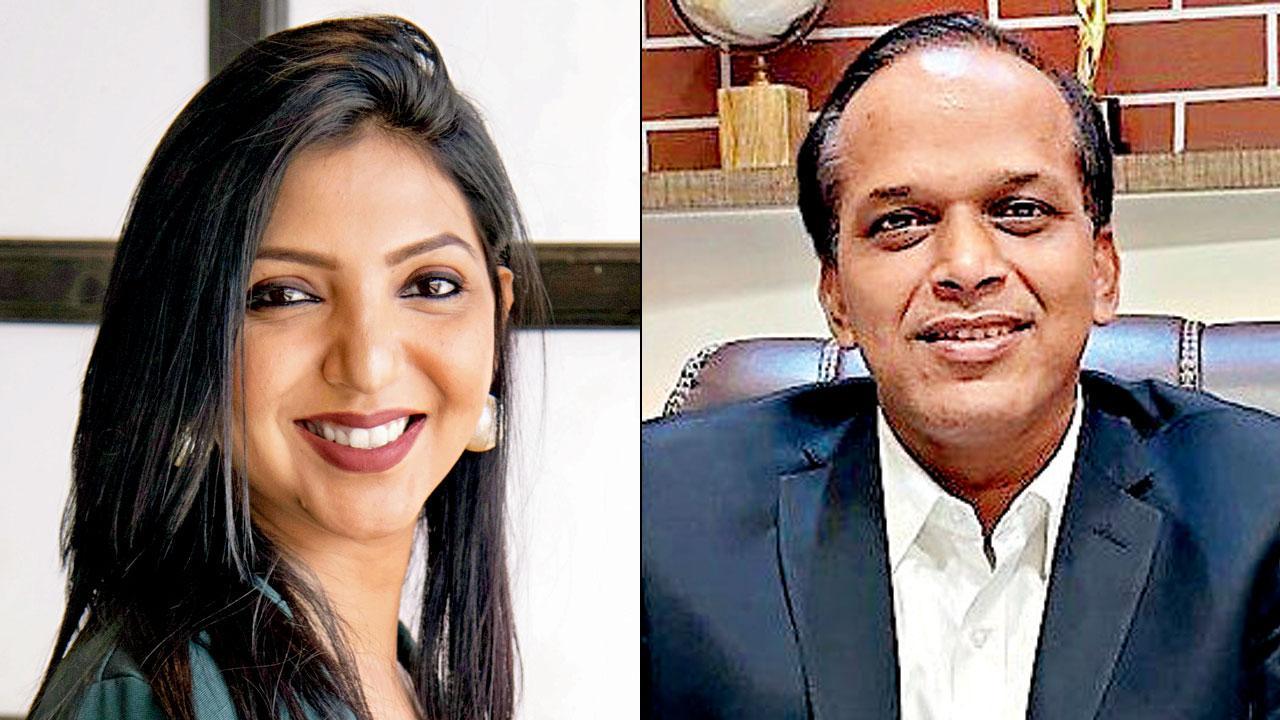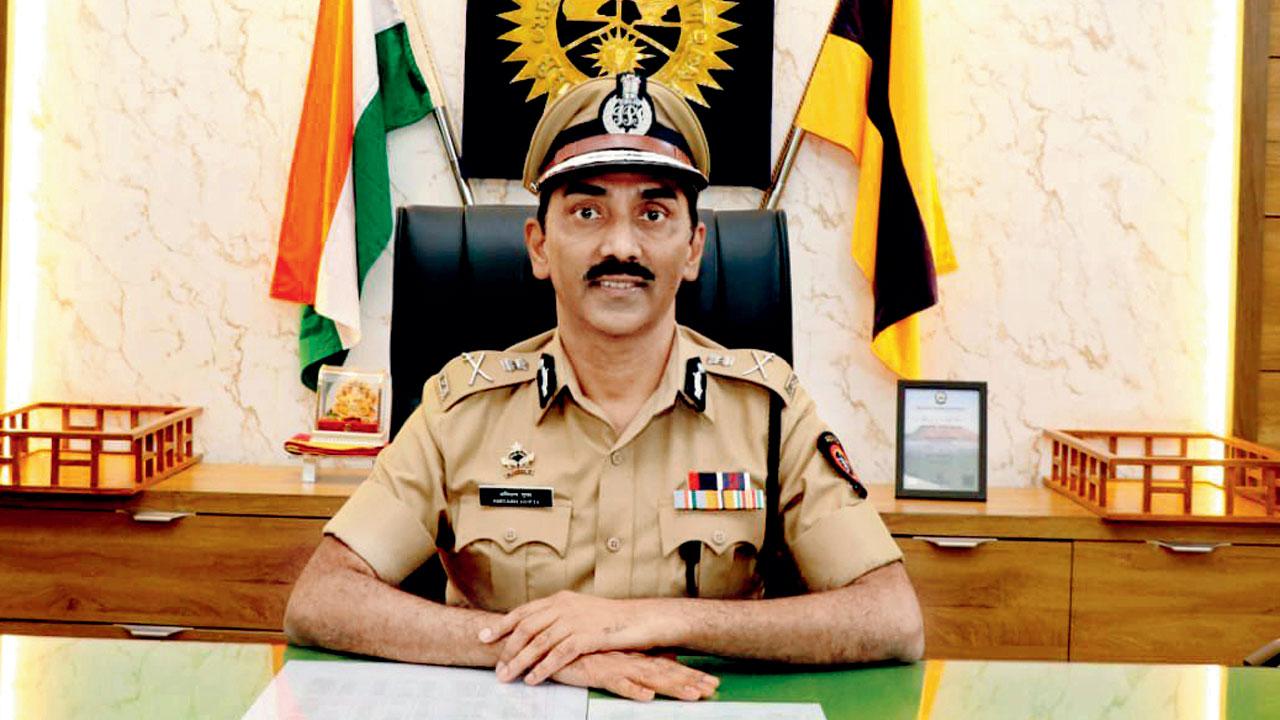Four of five varsities that responded to prison dept’s request expressed inability to provide legal education through distance or online mediums

Mohini Priya, advocate, SC; Dinesh Tiwari, criminal lawyer
The Bar Council of India may need to come out with a mechanism in setting up study centres to those prisoners aspiring to pursue legal education. Universities in Maharashtra do not have such a provision to set up any study and exam centres, as law education cannot be imparted in distance education mode.
The state prison department had recently written to the vice-chancellors of five universities in the state—Rashtrasant Tukadoji Maharaj University, Nagpur; Dr Babasaheb Ambedkar Marathwada University, Sambhajinagar; Kaviyatri Bahinabai Chaudhari North Maharashtra University, Jalgaon; Savitribai Phule University, Pune and Mumbai University, requesting them to establish study and exam centres in the prisons and almost all of them have responded in negative.
Background
The issue is the fallout of a recent event where a convict with the permission from the High Court appeared for his second semester LLB (family law-1) paper on June 12. Mohammed Sajid Ansari is serving a life sentence in the Mumbai serial train blast of 2006 in the high security cell of Nashik prison. Ansari appeared for the exam in the presence of a special invigilator, appointed by the Mumbai University. This incident compelled the prison officials to explore the possibility of facilitating legal studies for jail inmates.
Excerpts of Uni response
Highly placed prison officials revealed, “Out of five, we have received four responses at our prison headquarters, Pune, barring Mumbai University (MU) all other universities have responded.”

Amitabh Gupta, additional director general and IG Prisons
Nagpur University stated: “As per the Advocates Act 1961, the Bar Council of India is empowered to make rules for imparting legal education and its standard. As per Legal Education Rules, 2008, the Bar Council of India clearly mandates that law education cannot be imparted in distant education mode. Besides, legal education mandates physical presence of students in classrooms. Because of this, inmates they cannot be enrolled for legal education.
Savitribai Phule University, Pune, stated: ”The university does not impart legal education in its existing list of courses offered and therefore the university won’t be able to provide any assistance in setting up centres for learning of legal education in prison in distance mode.”
Kaviyatri Bahinabai Chaudhari North Maharashtra University, Jalgaon, stated: “Legal education is a full-time course and the enrolment eligibility is decided on the basis of scores obtained in MH-CET entrance examination conducted by CET Cell, Mumbai. If the student is found to be eligible for admissions in colleges as per the existing rules, then to enrol such students the Jalgaon University may set up an admission centre at Nashik Central jail.” Dr Babasaheb Ambedkar Marathwada University, Sambhajinagar stated: “For Prisoners courses in BA, BCom, MA and MBA education is provided only through open university.”
Prison dept chief speaks
“As per the responses received from universities, it seems, in the present education system, there are technical hurdles for law education to be imparted in distance format as legal study requires classroom presence” said Amitabh Gupta, additional director general and IG (Prisons). “We must understand that reformation is the key under the prison norms and we will have to find a way out. And hence it will be pertinent to have a think tank brainstorming with all the stakeholders, before we could arrive at any conclusion. Our concern is also, if some convict or undertrial expresses interest to study engineering or medicine, will it be viable,” pointed out Gupta.
Inmates’ rights
“Prisoners and undertrials should have the right to legal education, as it aligns with the principle of rehabilitation central to modern penal philosophy. Various constitutional provisions, Supreme Court judgments, and policy frameworks support the right of prisoners to access education, including legal education. Legal education empowers prisoners with knowledge about their rights and the legal system, fostering a sense of justice and fairness. This understanding helps them navigate their circumstances within the penal system and upon release, contributing to their reform and reintegration into society,” said advocate Mohini Priya, advocate on record, Supreme Court.
Manual outlines
“The Model Prison Manual (2016) issued by the Ministry of Home Affairs outlines the need for educational facilities in prisons, including vocational training, adult education, and higher education opportunities. Apart from this, the National Policy on Prison Reforms and Correctional Administration (2007) emphasizes the importance of education and vocational training in the reformation and rehabilitation of prisoners. Several non-governmental organizations work with prison authorities to facilitate educational programmes and legal awareness workshops for prisoners. Besides, prisons are encouraged to maintain libraries with legal texts and other educational materials. However, challenges arise in terms of prison infrastructure, quality of educational initiatives as well as the security of educational material and facilitators,” said Advocate Mohini.
Way out
According to advocate Priya, “The Bar Council of India should proactively facilitate this initiative by incorporating distance learning options for legal education. This would ensure that prisoners have access to quality legal education, regardless of physical confinement, through online courses, virtual lectures, and digital legal resources. A collaborative effort involving correctional institutions, educational bodies and open universities, and legal authorities is essential to provide the necessary infrastructure and support, ultimately fostering a more inclusive and rehabilitative penal system.”
State and BCI should decide
Advocate Dinesh Tiwari, who has been practicing criminal law for over two decades said, “Unlike other graduate and postgraduate programmes which can be done in distance education mode, we must understand legal education cannot be imparted in distance mode, as it insists for classroom studies, as per Bar Council of India norms, and therefore according to me, such a demand from prisoners insisting for legal education, is a policy matter to be decided by BCI and the government.”
Other side
Attempts made to contact Manan Kumar Mishra, senior advocate Supreme Court, and chairman Bar Council of India, did not yield results. The BCI office told mid-day the chairman and a few other senior members of BCI were out of India.
 Subscribe today by clicking the link and stay updated with the latest news!" Click here!
Subscribe today by clicking the link and stay updated with the latest news!" Click here!










